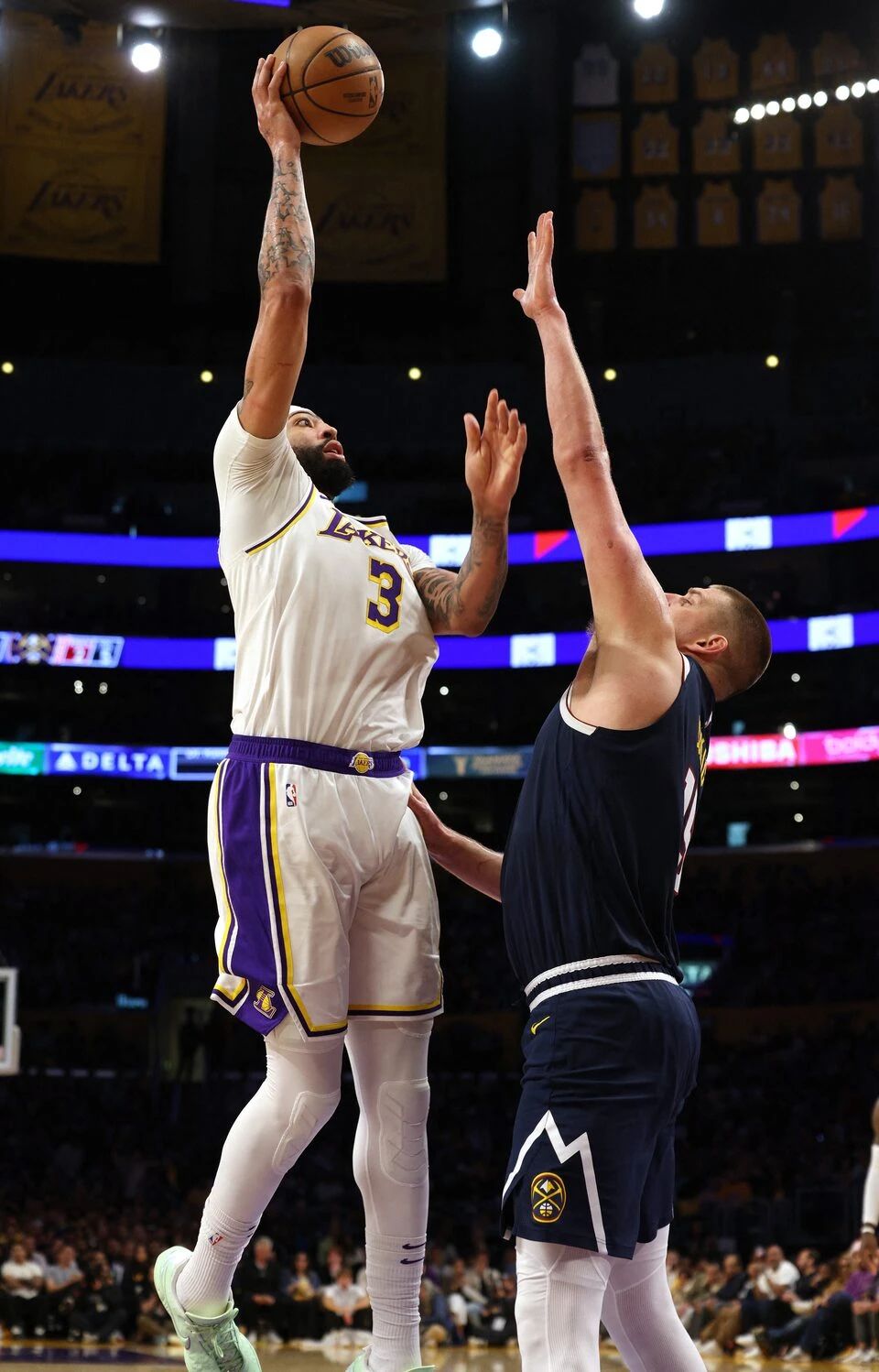Finally. Finally. FINALLY—the Lakers avoided the sweep, edging the Nuggets 119-108 in Game 4 to snap an 11-game losing streak against Denver.
Los Angeles played nothing like a team down 0-3. For the fourth straight game, they led by double digits in the first half, extending the margin to 19 points with six minutes left in the fourth quarter.
So, is a 4-3 Lakers comeback possible?
The old saying goes, “Never say never,” but the odds are slim—borderline nonexistent.
While I’ve argued the Lakers match up evenly with Denver when fresh, the Nuggets are clearly the superior team—deeper roster, deadlier offense, better stamina. They have no glaring weaknesses. For LA to rally, they’d need four straight wins, and in any close game, Denver holds the late-game edge.
Think about it: up 3-0, Denver only needs a 25% win rate to close the series.
With the 3-0 cushion, the Nuggets dialed back the intensity. Jamal Murray, their perimeter engine, attacked less aggressively, and the Lakers’ heightened defensive focus—often doubling him on the catch—held him to 0-of-5 from deep (9-of-23 shooting).
Don’t mistake LA’s win for a “we’re gonna reverse sweep” mentality. This was likely their final game of the season, or at least their last home game—they owed it to the crowd to compete.
The Lakers led big in the first three games too (once by 20 points), but energy management killed them. The key to Game 4? Better stamina prep.
Coach Darvin Ham skipped practice the day before, letting LeBron James and Anthony Davis rest. He showed film of LA’s first-half dominance in prior games, reinforcing that they can ball when fresh.
Sticking with the starting lineup—including trust in D’Angelo Russell—paid off. Russell hit 4-of-8 threes for 21 points, looking like his old self.
LeBron also adjusted his workload. In Game 3, he rested just 50 seconds in the second half, gassing out late. Here, he followed a normal rotation: 18:17 in the first half, 8:33 in Q3, and the entire fourth quarter. Yes, he still played 39 minutes, but he paced himself for the finish.
In the fourth, LeBron went 6-of-8 for 14 points.
Beyond energy management, AD’s efficiency against Nikola Jokic was crucial. He’s the foundation of LA’s system, and his resurgence—after post-2020 lapses—has been vital.
In 11 playoff series, AD’s best ball came in 2020: 25+ points in all four rounds, including 31.2 vs. Denver in the WCF. Since then, he’s averaged just 21.6 in four series. But this year? He’s been lights out: 30+ points and 10+ boards in the first three games, 25/23 (a season high) in Game 4. For the series, he’s at 30.5/15.8—playoff career highs in rebounding.
But AD again scored just one bucket in the fourth quarter—his third straight game with a single fourth-quarter field goal. It’s a deliberate plan: let AD dominate early (23/19 through three quarters today), then let LeBron take over late.
No matter the outcome, AD’s matchup with Jokic is LA’s lone bright spot.
The elephant in the room? Age and stamina. Heading to Denver’s 5,280-foot altitude, fatigue will only worsen.
Even if LA nails energy management in every hypothetical game, a comeback is still a Hail Mary.
Their double-digit leads aren’t flukes—their transition-heavy, defensive style works when fresh. But in four straight games, they’ve wilted late. Today, they led by 19 with 5:58 left, only to let it shrink to 8 with 1:47 remaining. LeBron had to abandon playmaking for iso drives to seal it—you can’t count on him for 14 fourth-quarter points every night.
Against Denver’s poise, LA can’t afford to let games stay close. The Nuggets thrive in 50-50 moments, while LA needs blowouts. And with guys like Russell hot-and-cold, inconsistency is fatal.
That’s why in NBA history, no team has ever come back from 3-0.
